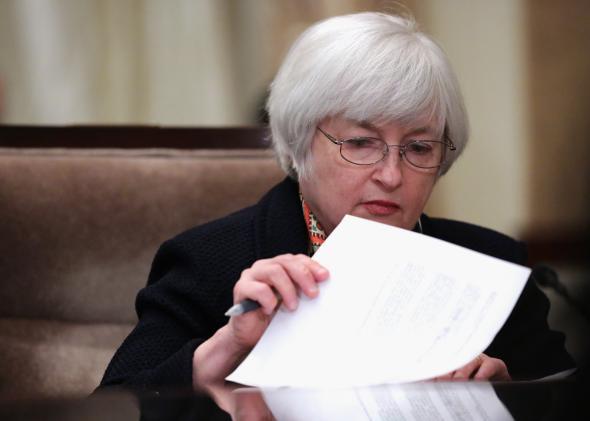Every so often, the economy reaches a point where bad news in the jobs report becomes good news. Right now, we’re at one of those moments. The U.S. added a solid 175,000 jobs in February, despite the nasty spate of winter weather that some thought would put more of a damper on hiring. But the real relief may be that in spite of that growth, the unemployment rate actually ticked up slightly, to 6.7 percent.
Why celebrate a rising jobless rate? Because it gives the Federal Reserve an excuse to lean back and let the economy keep gathering steam without worrying too much about inflation. Back in 2012, the Fed promised not to raise interest rates from zero at least until the jobless rate hit 6.5 percent. We’ve gotten close to that magic number, even though very few people are really feeling great about the state of the jobs landscape.
Well, few regular people. Recently, some economists and writers have started to suggest that the labor market really is getting “tighter,” meaning demand for workers is going up along with wages—which could mean inflation down the line. How can it be so “tight,” if unemployment is still so much higher than we’ve been used to over recent decades? There are really two kinds of unemployment—short-term and long-term. And, as the Federal Reserve Bank of New York has shown, short-term unemployment is approaching normal levels.
It’s the short-term unemployment rate, the Fed’s researchers suggest, that might predict wages, and therefore inflation. Implicit here is the idea that the long-term unemployed aren’t really part of the labor market at all. They are, for all intents and purposes, the permanently jobless.
You can have a long debate about whether that’s true. It might be the case that if the job market gets hot enough, employers will get over their horrible aversion to hiring people who’ve been out of work for a while to keep from paying higher wages. In that case, inflation wouldn’t be as great a concern.
Or one could just argue that we should be willing to tolerate a little bit of inflation in the future for the sake of creating jobs.
But whoever is right, as the unemployment rate falls, pressure is going to build on the Fed to raise interest rates. So in the best of all possible worlds, the economy might keep producing more jobs for the near future, with enough Americans coming back into the labor force to keep unemployment up and our monetary policymakers at bay.
